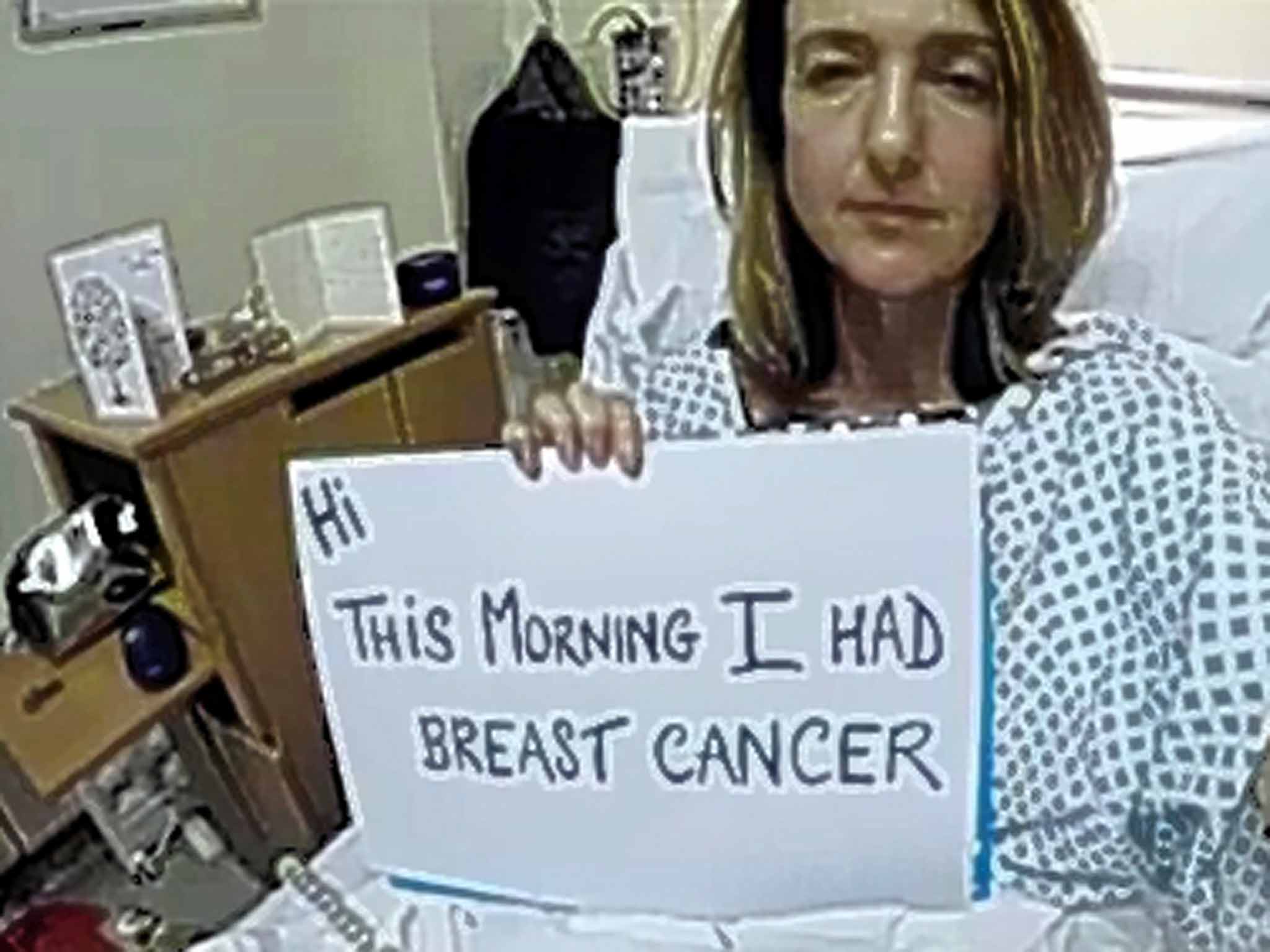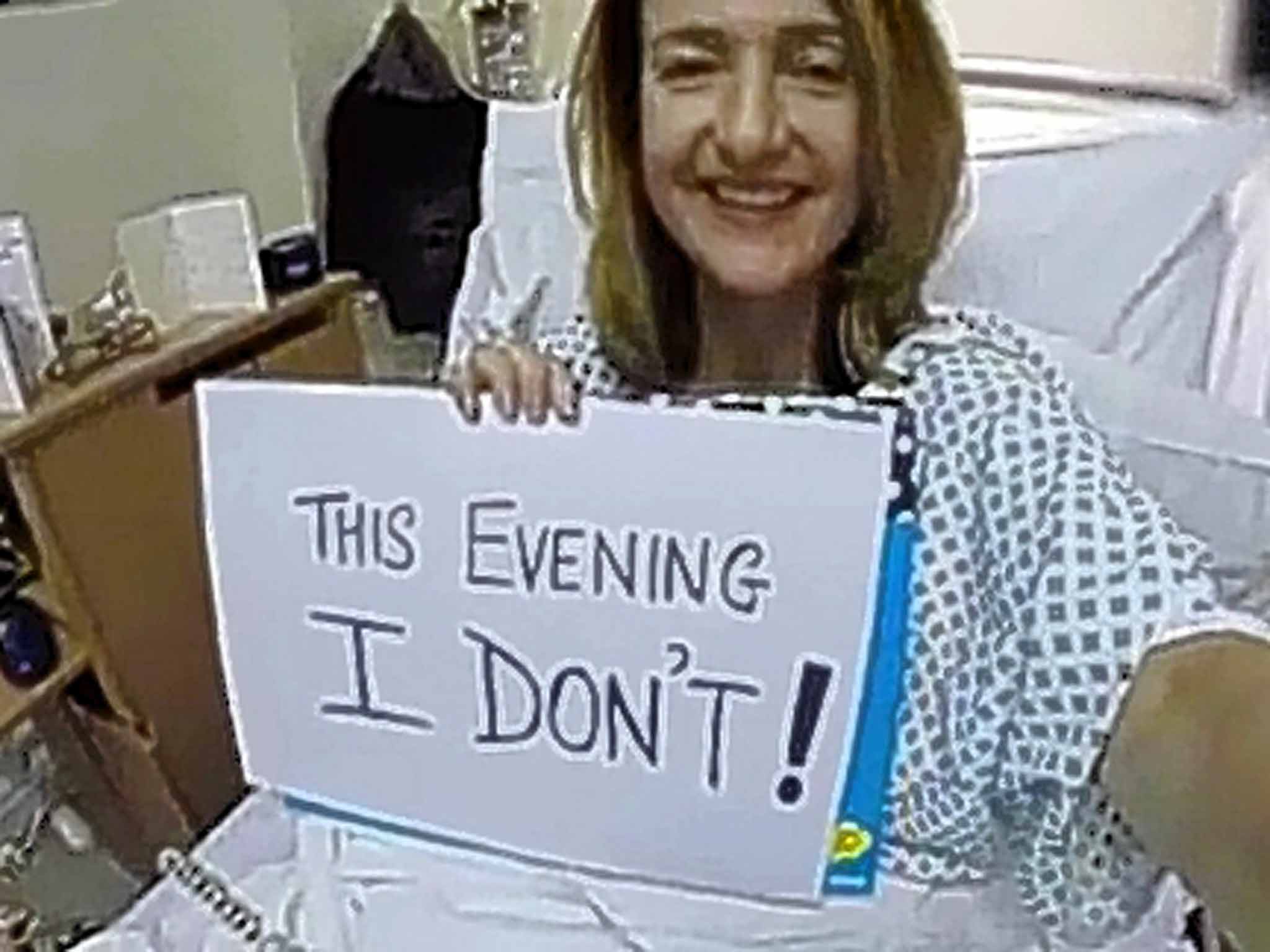Does Victoria Derbyshire's reaction to cancer treatment send an over-simple message?
While I admire Victoria's courage, I don't really believe we can so quickly say, 'Now I don't have cancer', says fellow sufferer Catherine Pepinster

The pictures brought it all back. There was Victoria Derbyshire in her hospital gown, sitting up in bed, just hours after surgery for breast cancer. Just over a year ago, that was me – in identical gown, in identical NHS-issue bed, coming round after an op, too, although in my case it was a lumpectomy – partial surgery rather than a full mastectomy. The key intention was the same: removal of a cancerous tumour.
As I looked, I had to admire her. To release those images and prepare a video diary about her illness and treatment to be shown on her daytime TV show takes real guts.
What I do recall vividly after my operation is the euphoria I felt, which may have been caused by the painkilling drugs patients receive after surgery. Then there's the relief of knowing that you have got through it. Perhaps this explains why Victoria first held up a poster saying, “This morning I had breast cancer”, followed by another saying, “This evening I don't”.

Every breast cancer patient wants to believe that the damned thing has gone when your tumour is removed. But cancer is insidious. It often has to be tackled by all manner of procedures, and surgery is just one tool in any cancer-busting kit. So that first overwhelming experience, your first operation, may well not be the end of the road but just the start of a very long journey.
Victoria explained that surgeons took away some of her lymph nodes in which “tiny bits of cancerous cells” had been detected and post-surgery tests will determine their significance. A similar set of cells, in my case, meant that I embarked upon all kinds of treatment: radiotherapy, conventional chemotherapy, intravenous drug therapy with a new generation of drugs via a clinical trial, and now the long-term taking of a daily pill for hormone treatment. My first surgery took place in August 2014; I'm due to finish my trips to the chemo suite at the end of this year. Then there are the check-ups and the daily drug-taking for another decade.
While I admire Victoria's courage, I don't really believe we can so quickly say, “Now I don't have cancer”, because I have known too many people who were treated for it and then years down the line found it reccurred. Some of them have been women who enjoyed a decade or two of good health after breast cancer, and then needed more treatment when it returned. So I wonder sometimes if I might have the odd cell hibernating somewhere inside me that will one day rouse itself to take on me, and the health profession, once more.
The good news for women is that the medical profession and pharmaceutical companies are making progress in developing more sophisticated treatments to counter breast cancer. And being realistic about the chances of recurrence is not necessarily a bad place to be. It makes me relish being alive so much more and appreciate those I love, and it inspires me to take better care of myself.
In the weeks and months to come, Victoria, if she is like me, will meet extraordinary medical teams in the NHS and inspirational fellow patients. They will help her get through this. And she's right: cancer is not something the patient fights as if it is a battle, and she's not a loser or defeatist if the prognosis is not as good as one hopes. The most important matter of all is a determination to do all you can to cope with the hand you have been dealt. Victoria clearly has that in spades. µ
Catherine Pepinster is editor of 'The Tablet', the Catholic weekly; thetablet.co.uk
Join our commenting forum
Join thought-provoking conversations, follow other Independent readers and see their replies
Comments